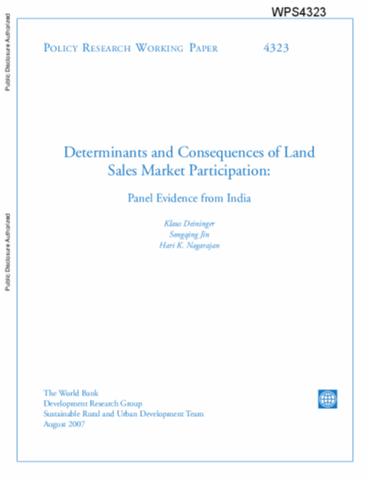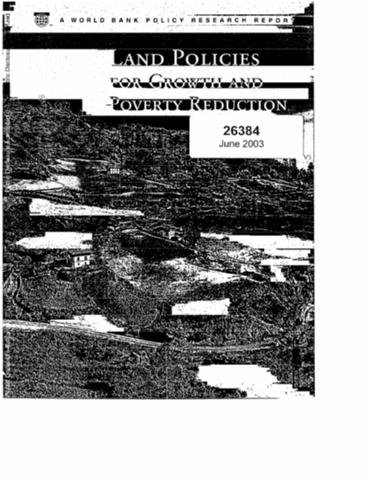Secure land rental contracts and agricultural investment in two communal areas of KwaZulu-Natal
This study tests the hypothesis that an efficient rental market for cropland is a significant determinant of agricultural investment in the communal areas of KwaZulu-Natal. An efficient rental market creates an opportunity cost for under-utilisation, which tends to transfer resources to more effective users. The efficiency of a rental market is compromised by the presence of transaction costs that reduce returns for both lessees and lessors. Transaction costs include risk arising from a possible breach of the rental contract.






